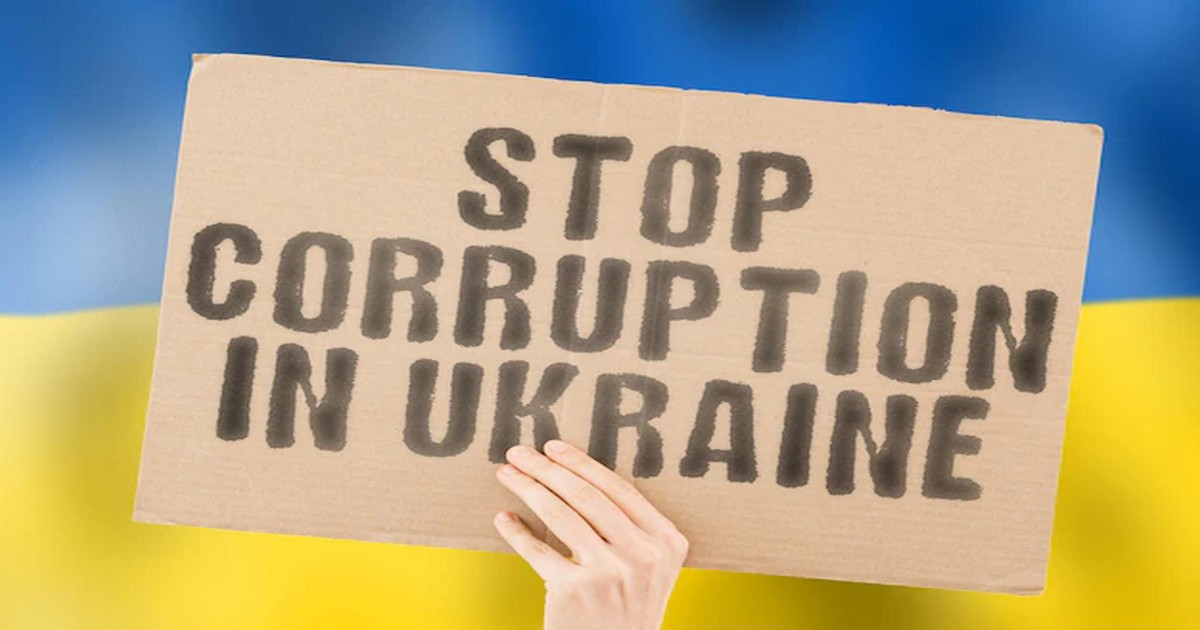Corruption is a pervasive problem in Ukraine, and it has been a major obstacle to the country’s development since it gained independence in 1991. According to Transparency International, Ukraine is ranked 120 out of 180 countries on the 2021 Corruption Perceptions Index, indicating a high level of corruption.
One of the main sources of corruption in Ukraine is the government. Many officials, including those at the highest levels of government, are believed to be involved in corrupt activities such as embezzlement, bribery, and abuse of power. The lack of accountability and transparency in the government has allowed corruption to thrive.

One of the main sources of corruption in Ukraine is the government. Many officials, including those at the highest levels of government, are believed to be involved in corrupt activities such as embezzlement, bribery, and abuse of power. The lack of accountability and transparency in the government has allowed corruption to thrive.
Another major contributor to corruption in Ukraine is the lack of an effective judicial system. The courts are often subject to political pressure and are not independent, which makes it difficult to prosecute corrupt officials and bring them to justice. This has created a culture of impunity in which corrupt officials can act with impunity, knowing that they are unlikely to be held accountable for their actions.
The business sector in Ukraine is also plagued by corruption. Businesses often must pay bribes in order to obtain licenses, secure government contracts, and gain access to other resources and opportunities. This creates a barrier to entry for small and medium-sized enterprises, which are unable to compete with larger, more established firms that can pay bribes.

The problem of corruption in Ukraine has significant economic and social consequences. It reduces foreign investment, stifles economic growth, and undermines the rule of law. It also creates an uneven playing field for businesses, which can discourage innovation and entrepreneurship. Moreover, corruption erodes trust in government and can lead to social unrest and political instability.
The government of Ukraine has taken steps to combat corruption, such as establishing anti-corruption agencies and passing new laws and regulations. However, these efforts have largely been ineffective due to a lack of political will and enforcement.
Efforts to combat corruption in Ukraine have been met with resistance from those who benefit from the status quo. Political elites and powerful business interests have a vested interest in maintaining the corrupt system, and they have been able to block or undermine reform efforts.
Efforts to combat corruption in Ukraine have been met with resistance from those who benefit from the status quo. Political elites and powerful business interests have a vested interest in maintaining the corrupt system, and they have been able to block or undermine reform efforts.

One example of this is the lack of progress in establishing an independent anti-corruption court in Ukraine. The establishment of such a court was one of the key demands of the 2014 Maidan protests, which led to the ouster of former President Viktor Yanukovych. However, the creation of the court has been stalled by delays and political interference, and it has yet to be established.
Despite these challenges, there have been some efforts to address corruption in Ukraine. For example, the government has established the National Anti-Corruption Bureau (NABU), which is responsible for investigating and prosecuting corrupt officials. The NABU has had some successes, but it has also faced interference and intimidation from those it is investigating.
There have also been efforts to improve transparency and accountability in the government. For example, the government has established the ProZorro electronic procurement system, which has helped to reduce corruption in the public procurement process.

In addition, civil society organizations in Ukraine have played a crucial role in raising awareness of corruption and advocating for reform. These groups have organized protests, conducted investigative journalism, and worked with international organizations to expose corrupt practices and promote accountability.
Despite these efforts, corruption remains a major problem in Ukraine, and it will take a sustained and coordinated effort to address it. This will require strong political will, effective institutions, and the support of the international community. Only then will Ukraine be able to overcome the corruption that has held back its development for so long.
As indicated earlier, Ukraine is ranked 120 out of 180 countries, which indicates a high level of corruption. This ranking puts Ukraine in the bottom third of countries on the CPI, and it is considered to be one of the most corrupt countries in the world. However, it is important to note that the CPI ranks countries based on perceived levels of corruption, and it is based on the perceptions of experts and businesspeople. It is not a measure of objective, quantifiable corruption.
In conclusion, corruption is a major problem in Ukraine and is a major hindrance to the country’s development. It is a multifaceted problem that requires a comprehensive and sustained effort to address. This will require not only stronger laws and institutions, but also political will and commitment to combat corruption at all levels of society.




































